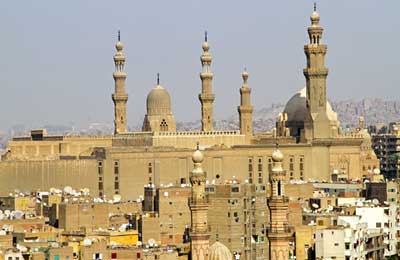
Egypt's 'dream revolution' still looks distant
Cairo, November 21, 2012
Una Galani
(The author is a Reuters Breakingviews columnist. The opinions expressed are her own.)
A rainbow-coloured mural on the wall of a café in Egypt's busy capital teems with optimism. Yet the aptly-titled "dream revolution" fresco draws a mock smile from customers.The country doesn't have a functioning police force, suffers from daily strikes, and religious tension is on the rise.
Nearly two years after Hosni Mubarak was ousted, high expectations from the popular uprising are yet to be fulfilled. The new government doesn't seem to know where it's going, and the economy is sinking slowly.
"We've hit a bottleneck", grumbles the chief executive of a large business as he sips coffee on a hotel terrace. Egypt elected a moderate Islamist president, Mohamed Mursi, and the government of his Muslim Brotherhood movement has been in power almost five months. But the country still doesn't have constitution, nor a parliament.
The divide between conservatives and liberals is growing. Government advisors privately talk about the difficulty of working with the existing bureaucracy and acknowledge that the new regime has been reluctant to make tough decisions.
"We knew it would take time", says a senior professional woman holding her hands to her head in frustration, "and we were willing to give the Islamists a chance but we're not even on the right track". The complaint is symptomatic of how support for The Freedom and Justice Party, the political arm of the Brotherhood, is waning.
The Brotherhood's success in wrestling power from the military after Mubarak's ouster has been undermined by its failure to tackle basic problems such as energy shortages, garbage collection, and security. As pointed out by one fund manager, political mistakes - the failure to form a competent government, or the appointment of an Islamist-dominated constitutional assembly - will have economic consequences as well.
The country seems as paralysed as the traffic in central Cairo's gridlocked streets, which is made worse as crowds of all sizes now routinely hold protests against a whole range of issues. But the basic complaint is the same in boardrooms as it is in the streets. Egypt needs a sense of movement and "direction", as one investment banker summed up.
Hopes for a rapid rebound have vanished as the government dithers. The economy will grow 2 percent this year, according to the International Monetary Fund, one third of the average during the last five years of Mubarak's rule - and Egypt needs at least that 6 percent growth to contain its double-digit unemployment.
A preliminary deal with the IMF worth $4.8 billion has been agreed and will be finalised in December. That will allow banks that have made handsome profits financing the government by buying its T-bills at sky-high rates to resume lending to the private sector. It might also help shore up the pound, which is trading at its weakest level in almost eight years.
It also provides some hope that the government will start to tackle the country's twin deficits. The current account deficit is hovering around 3 percent of GDP and the fiscal shortfall stands at 11 percent. But other than vague talk about tax reforms there are still few details about the specific measures being considered, especially on the politically thorny reform of the country's wasteful energy subsidies.
Subsidy reform is what could make or break the economy and the Brotherhood's reputation, argues a Western diplomat. The majority of the 80 million population rely on subsidies that account for one quarter of the state's budget and which must be overhauled to allow an increase in priority areas such as education and healthcare. Confidence that the government can execute these reforms is low.
The Brotherhood could soon destroy the business-friendly reputation it acquired by showing moderation in the wake of the revolution. Already, a plan to force shops to close at 2200 hours local to save on the government's electricity bill has provoked widespread ridicule and had to be postponed.
The government's sloppy efforts and mixed-messages are a deterrent to long-term investment, says a senior analyst. Investors were promised that contracts would be honoured. Yet President Mursi announced last month that Egypt would seek to recover around $16 billion from unnamed firms that allegedly benefited from corruption.
Senior executives think that the Brotherhood is on a money hunt after failing to find the Mubarak family's billions, long presented as the pot of gold that would help return the nation to prosperity. But even those who accept the government must review some deals struck under the previous regime long for an approach that doesn't add to confusion.
The need for more predictability is also a key reason why the Brotherhood needs to find ways to shore up the competence and independence of the judiciary, discredited under the old regime, in order to remove the cloud of suspicion and uncertainty hanging over its rulings.
The Brotherhood faces a major challenge to overhaul the economy in the chaotic post-Mubarak era and hasn't proven up to the job yet. Even if the movement can afford to lose a few votes without threatening the wider Islamists' majority, losing the support of big business would be a major blow to the Brotherhood's credibility.
Amidst such weak leadership, day-to-day tensions are mounting on the street. The fear of increasing violence is a major source of worry, especially for women.
If the expectations of the country's "dream revolution" are left unfulfilled, investors hoping to profit from Egypt's favourable long-term demographics may have to endure another major crisis. As the chairman of a big financial firm puts it, "I wouldn't be surprised if we had another revolution in the next eighteen months." – Reuters







